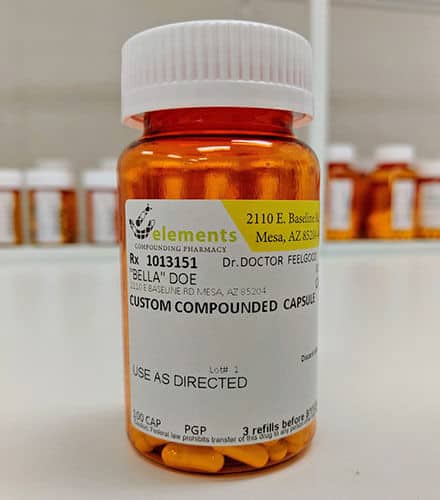Comprehending the Conveniences and Uses of Fenbendazole in Vet Medication
Fenbendazole has actually established itself as a crucial anthelmintic in veterinary medication. Its ability to target numerous parasitic infections makes it a useful tool for veterinarians. The drug's device interrupts essential mobile procedures in bloodsuckers, leading to reliable treatment results. However, its safety profile ranges species, demanding careful consideration in its use. Recognizing these dynamics can clarify fenbendazole's broader ramifications in veterinary care and continuous research study right into its prospective beyond typical applications
Mechanism of Action of Fenbendazole

Typical Parasitic Infections Treated With Fenbendazole
A selection of parasitical infections are properly treated with fenbendazole, making it a functional alternative in veterinary medicine. This anthelmintic agent is especially effective versus nematodes, consisting of roundworms and hookworms, which frequently impact pet dogs and pet cats. It is also used for the therapy of cestodes, such as tapeworms, giving a wide range of action against both kinds of intestinal tract bloodsuckers. Furthermore, fenbendazole is advantageous in managing infections triggered by protozoa, particularly Giardia, which can lead to intestinal distress in pets. Its efficacy includes dealing with specific lungworms in pooches and felines, addressing breathing health and wellness problems linked to these bloodsuckers. On the whole, fenbendazole's ability to target multiple parasitic varieties makes it a beneficial tool in vet technique, ensuring the health and wellness and well-being of family pets influenced by these usual infections.
Safety and Efficacy in Various Pet Variety
The safety and efficiency of fenbendazole differ among various pet types, highlighting the relevance of species-specific factors to consider in veterinary medicine. In canines, fenbendazole is generally well-tolerated and efficient against an array of stomach bloodsuckers, including roundworms and hookworms. For felines, however, its usage is much less typical and may call for mindful application as a result of potential damaging responses.
In livestock, such as cattle and lamb, fenbendazole shows efficiency versus different endoparasites, contributing to improved health and performance. The pharmacokinetics and potential side results can vary considerably in between types, requiring cautious analysis by veterinarians.
Horses likewise respond favorably to fenbendazole, particularly for dealing with strongyles and ascarids, though dosage and administration paths should be customized to their distinct physiology. Subsequently, comprehending these differences is essential for maximizing therapy end results and making certain animal click for source well-being throughout diverse types.
Administration and Dosage Standards
Correct administration and dosage standards are essential for optimizing the healing results of fenbendazole while decreasing prospective adverse effects. The dose usually differs relying on the species being dealt with, the certain problem, and the solution of fenbendazole used. fenbendazole 444. For pet dogs and pet cats, an usual dosage is 50 mg/kg body weight, provided when daily for 3 successive days, yet vets may change this based on private health and wellness evaluations
It is essential to carry out fenbendazole with food to enhance absorption and reduce stomach upset. The medicine is available in numerous forms, consisting of granules and paste, enabling adaptable management choices. Checking the animal's reaction during and after treatment is advisable to validate effectiveness and safety and security. In addition, vet guidance is essential to establish the ideal duration of treatment based upon the kind of parasitical infection being attended to, ensuring optimal end results for the pet's health and wellness.
Future Point Of Views and Research on Fenbendazole
Study on fenbendazole proceeds to progress, concentrating on its potential applications past conventional antiparasitic uses. Recent studies the original source have explored its effectiveness in treating various forms of cancer cells, especially in veterinary oncology. Initial data suggest that fenbendazole may hinder the growth of lump cells and improve the results of various other chemotherapeutic representatives.
Moreover, researchers are examining its role in handling intestinal disorders in pets, highlighting its anti-inflammatory properties. The versatility of fenbendazole for different types questions about its security accounts and perfect application regimens in varied populaces.
As rate of interest expands, there is a requirement for extensive professional trials to develop evidence-based standards for these novel applications. Future research might additionally investigate the systems behind fenbendazole's results, possibly leading the way for ingenious healing strategies in veterinary medicine. The continuous expedition of fenbendazole might substantially enhance therapy alternatives for various veterinary over at this website problems.

Regularly Asked Questions
Is Fenbendazole Safe for Pregnant Animals?
The safety and security of fenbendazole for expecting pets remains unclear. While some research studies recommend minimal danger, vets generally recommend caution and frequently discourage its usage during pregnancy unless the advantages plainly exceed possible dangers.
Can Fenbendazole Be Made Use Of in Livestock?
Fenbendazole is typically made use of in animals to deal with numerous parasitic infections. fenbendazole capsules. Its efficiency against stomach worms makes it an important anthelmintic, adding to boosted health and wellness and performance in animals elevated for food and fiber
What Are the Adverse Effects of Fenbendazole?

The side effects of fenbendazole might include stomach disruptions, sleepiness, and allergies. In unusual instances, extra severe responses can occur, demanding careful monitoring and appointment with a vet during therapy.
How Does Fenbendazole Compare to Various Other Dewormers?
Fenbendazole provides broad-spectrum efficiency against different bloodsuckers, commonly comparing positively to other dewormers. Its special mechanism targets various life phases, making it reliable, while usually offering a positive safety and security account contrasted to options readily available on the market.
Can Fenbendazole Be Made Use Of for Dealing With Cancer in Pets?
The potential of fenbendazole in treating cancer in pet dogs has actually gathered interest. Preliminary research studies suggest it may prevent cancer cell development, however better study is required to validate its efficiency and security in vet oncology.